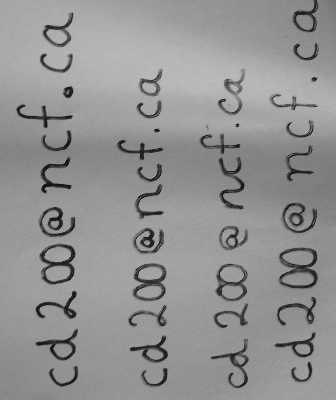As a people, we are proud of our story-telling, our
literature, our theatre,
our ability to improvise with words; and there is a
temptation to think that
we put that at risk if we espouse these new forms
of communication.
In fact we can profoundly enrich the method of contact
by the means of
expression, and we can and should - as a people who have a
painful historic
experience of silence and absence - welcome and use the
noise, the excitement,
the speed of contact, and the sheer exuberance of
these new forms.
President Mary Robinson of Ireland (1995)

Ireland may have the wee-folk, but we have the web-folk. Our busy web-folk peek out over a wall of electronic gear (one is readily visible), warily eyeing the camera-toting intruders.
The web-corner is a place of peace and tranquility, down at the back of
the garden. Visitors here are few, and web-folk are naturally suspicious.
Feedback - your turn to talk.
Write to us at the "C-D-two-hundred" address shown in the picture below. We were getting buckets of spam, so we have to present our address this way to defeat web-crawlers. Please rotate your head 90 degrees left to read it.

Sorry about your neck!
The purpose
of the Clan Mhac an t'Saoir website is to provide a beacon for all our people,
visible around the world, all day and every day; to provide a voice and presence
in cyber-space for our Goban Saoir and the Clan Committee; and to inform any who
ask, of our heritage, culture, and activities.
******************************************************************************
The site is
run by your faithful web-folk, reporting to the Clan Committee in
Ireland. Decisions regarding format, design, technical questions to do with
computing and Internet, are handled at the site, but questions of philosophy,
policy, content, and matters of that level are the purview of the Goban Saoir
and Clan Committee.
The site operates in several languages, partly because Irish hospitality
would have us do what we can to show a friendly face to the world, but also
because our Gaelic speaking ancestors tended to adopt the languages of their new
lands. Fate has scattered our people all around the world, and today there are
large Irish communities in French Canada, Latin America (mainly Argentina and
Brazil), and Eastern Europe. Many of these people speak little or no English,
and our French, Polish and Spanish text is an attempt to break through the
language barrier to reach our lost cousins wherever they may be.
We welcome letters in all languages, to be sure, but of course we are rather
limited in what we can read, and certainly in what we can write. Between us we
find English, French, Dutch, German and Italian easiest to read. Other languages
would require the services of a translator.
Correspondence can take up about twenty hours a week, at peak periods. We now
make limited use of form letters, but each and every letter is read by one or
several of us, and each and every letter sent out contains hand written text. So
our letters are just that - letters. National telephone campaigns, mass
mailings, and some telephone surveys are handled at the site.
Minor web maintenance is done as needed, during the week, but major work is
scheduled and carried out on weekends. We are limited to one million bytes of
on-line storage, so we have tended to favour text over photographs. We currently
offer over ninety pages of text.
Research for articles is carried out at the website, using Internet, public
and university libraries, and occasionally, consultation with local universities
or other institutions. All reference works are recorded in the bibliography, and
sometimes we comment on the text. We use international telephone directories to
do statistical surveys to find out where our people are in the world.
Our new format, which replaces the old "forty shades of green", is equally
Irish. The background colour is "parchment", in reverence to Saint Ciaran
McAteer's "Book of the Dun Cow." Nearly all print (even text which appears
black) is really in shades of green, in an attempt to lower contrast and thus
reduce eye strain. Photographs are "j-pegs" averaging about fifty-five thousand
bytes in size, except for Mitch Shirley's wonderful black-and-whites, which are
larger by half.
We try to follow the Irish bardic tradition in the use of poetry and prose to
illustrate or emphasize points made in the text. Surely there is nothing more
Irish than the use of verse, and you will encounter such use all over Ireland,
even in letters to the editor of "The Irish Times." All writings so used in
these humble pages are by Irish writers.
Our service provider is National Capital Freenet, which is a volunteer run
facility supported by grants, advertisers, and donors. We are one of the donors,
to be sure. The object of NCF is to make Internet access available to anyone who
wishes it, regardless of means. We like this philosophy because it guarantees we
will always be able to afford a website, and that gives us a stable address.
This site has been serving Clan Mhac an t'Saoir since early 1996. In the last
two years we have welcomed over 7,000 visitors, from over 30 countries. We
average about 70 visitors per week, peaking to over 100 at Christmas and St.
Patrick's day. Letters to the site rarely exceed 6 per day, and responding to
correspondence takes up over 90% of our time. Nearly all of our received mail is
in English, and we answer all mail, in all languages. As time passes, we have
become more visible in cyber-space, and we have entered into more reciprocal
links with other sites, and of course that continues to make us more visited.
We must thank DISCscribe Ltd., of New Brunswick for providing a number of
fine facilities, out of the goodness of their hearts, and we are especially
grateful to hundreds of our visitors for their encouragement and steadfast moral
support.
******************************************************************************
Surely no website of any
size can enjoy any measure of success without the kind assistance of many
people. We wish to recognize some of the major contributors here:
Carrie Schapker of "Yahoo" in California, for early advice and assistance
beyond the call of duty.
John D. McLaughlin, Historian for Clan McLaughlin, for much of our knowledge
of who we are.
Father Ian Wadolowski, St. Hyacinth Church, for Polish language translation
of our welcome and blessing.
Kasia, of the Embassy of Poland, for Polish language translation of our
Polish text.
James McAteer Sr., Florida, USA, for his writeup on the life of Saint Ciaran.
Peter McEntyre, Japan; James McAteer Jr., USA; James McAteer Sr., USA; Martin
MacIntyre, USA, for their enthusiastic and scholarly contributions to our
interminable group discussions.
Oswald "Watemeo", Ottawa, Canada, for his Spanish language translation.
Ken Ettie, Yukon, Canada, for his "Meandering McAteers" website.
Mitch Shirley, USA, for his great black and white phototgraphs.
******************************************************************************
I dreamt last night of you, John-John,
And thought
you called to me;
And when I woke this morning, John,
Yourself I hoped
to see.
by T. MacDonagh
You are very welcome to send comments,
questions, or suggestions to our web-folk at the address shown above.
Unfortunately, we had to discontinue our clickable e-mail reply because of
the volume of spam arriving - which truly put us out of business for a while!
Hope you don't mind this new method.
You are very welcome to send a greeting to the Clan, as well. Greetings will
be sent on to the Clan Committee to be read at meetings and gatherings. We take
your greetings seriously, to be sure, for they add something to the world's too
meagre reserve of good will.
Letters can be sent to the Goban Saoir (Head of Clan), or Secretary, by
ordinary mail, if you prefer. There are a number of addresses and phone numbers
of people on the Clan Committee, under "How to register ...". Sure but they
would all be very happy to hear from you.
Please note: This site answers all e-mail, so if you do not hear back
within a week or so, would you please check to make sure the e-mail facility in
your NET-BROWSER is transmitting properly, and that you can receive e-mail at
the address you sent us? You can test by sending yourself an e-mail. And
remember:
There's no hour of the day when you'd not be very welcome.
There's
no place so far away, that we'd not hear your call.
There's no corner of
this world so dark,
We'd over-look you there. Uaine
Homepage; top of page.
Metteer
of Clan Mhac an t'Saoir
"thought of mind, skill of hand, they are our own,
for we
are Freemen of Cine Mhac an t'Saoir"
(It is
absurd to divide people into good and bad. People are either charming or
tedious. - Wilde.)
|

